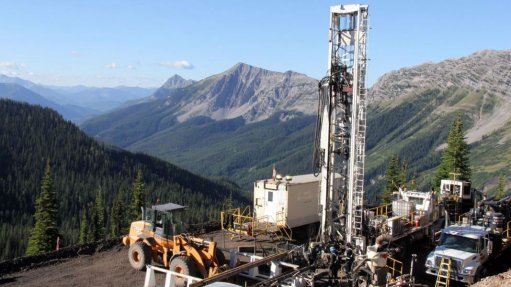
PERTH (miningweekly.com) – A yield optimisation study for the Crown Mountain coking coal project, in British Columbia, has increased anticipated production from the 1.7-million tonnes a year considered in the bankable feasibility study (BFS) to 1.96-million tonnes a year.
ASX-listed Jameson Resources on Friday said that the yield optimisation study, which was the first optimisation opportunity of the BFS, had confirmed increased product ash levels from 9.5% to 10.5% for North and East pit products, and from 9.5% to 11% for South pit product.
The increased yield and resultant increased exports has resulted in a 4% reduction in the operating costs, which is now estimated at $89.41/t, while the net present value (NPV) has increased by 25%, to $469-million, compared with the BFS.
“The yield optimisation study further enhances the cost competitive position and positive economic returns for the project. Crown Mountain is a compelling value proposition with high quality hard coking coal and robust economic outcomes located in a well-recognised existing production area with close proximity to established infrastructure,” said Jameson chairperson Nicole Hollows.
MD Michael Gray said that the completion of the yield optimisation study improved the project’s attractive business case, adding that Jameson would continue to progress other opportunities to optimise the project in parallel with progressing approval of the environmental assessment.
“The project’s attractive economics and progress of the environmental assessment are confirmed by the International Energy Agency’s view that Crown Mountain is the most advanced steelmaking coal project in Canada,” he added.
The project is expected to have a mine life of 15 years, and would require a capital investment of $309-million, delivering 28.46-million tonnes of coal. In addition to the higher NPV, the project’s internal rate of return has also increased from the 36.4% considered in the BFS, to 40.2%.